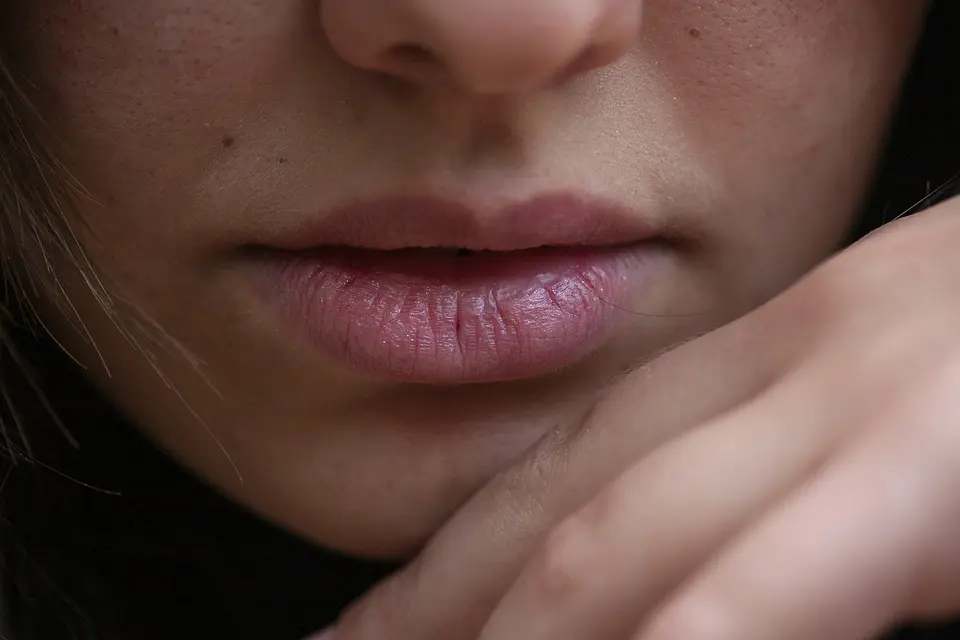There you are: brushing your teeth in small, circular motions to Pharrell’s “Happy,” smiling to yourself because it was such a beautiful day, and you’re feeling good! You get swept up in the song, and in your exuberance, your toothbrush jumps the rails and jabs into your cheek. Ouch! That’s going to hurt in the morning! Sure enough, the next day you find an angry red and white sore inside of your mouth that stings when you touch it or talk. Great. A canker sore. So what do you do now?

(Pixabay / Engin_Akyurt)
Why do I get them?
Contrary to popular belief, canker sores don’t always result from a cut in your mouth, and not all canker sores are caused by broken skin. They could be the result of a food sensitivity to acidic, spicy, or salty food, or you could be missing out on some key vitamins in your diet. You might be under a lot of stress at work or experiencing hormonal fluctuations due to menopause or menstruation. What’s more is that those sores could come from an overabundance (or allergy to) specific bacteria that already live in your mouth. These are all the temporary life factors that could cause a canker sore, but you may be even more susceptible to canker sores if you have certain inflammatory autoimmune diseases such as Crohn’s, Behcet’s, celiac disease or HIV/AIDS. What’s even more frustrating (and out of your control) is that you may be at an even higher risk to develop canker sores due to your heredity, gender, and age.
It’s important to understand that canker sores are not the same as cold sores. They aren’t contagious, and they aren’t caused by the herpes virus, though they are still incredibly uncomfortable. Luckily, most canker sores go away within a few days to two weeks without any lasting damage.
Are all canker sores the same?
There are three different kinds of canker sores: herpetiform, minor, and major. I know what you’re thinking: the previous paragraph said that canker sores were not related to the herpes virus, so why the name herpetiform? This name is a misnomer that just identifies an uncommon kind of canker sore that is made up of many tiny sores. If you have a canker sore, it’s most likely a minor one that is pretty small and ovular in shape, and it will usually go away in a couple of weeks. If you’re a really unlucky fellow, you might develop a major canker sore that looks and feels downright huge. These are not very common but can be very painful. Sometimes they even require a dentist to cauterize them so that they can start healing.
What should I do once I have one?
So what do you do once you find a canker sore? The first rule of thumb is this: don’t poke the bear. Be gentle around the canker sore, and don’t irritate it more by brushing vigorously around it. There are some over-the-counter oral pain gels that can help numb the area and encourage healing. Try to wash your mouth out with a saltwater solution daily while you have the canker sore, but if the pain is significant or accompanied by fever, make sure that you see your doctor or dentist right away.
How can I prevent them in the future?
Like we went over a few paragraphs ago, some causes of canker sores are out of your control, but there are some ways to try and prevent them. If your canker sores are stress-related, learn some stress-management methods, and actively seek to cut out stressors in your life. Keep up your good oral hygiene of brushing and flossing and using an approved mouthwash. To keep your body in balance, eat a good assortment of whole grains, fruits, and vegetables, and try to steer clear of salty, acidic, or spicy foods.
While canker sores can be annoying and painful, they aren’t the end of the world. Be patient as they develop and, hopefully, subside. If a canker sore lasts for more than a couple of weeks, consider seeing a doctor or dentist to make sure that there aren’t additional health issues contributing to your sore.
Don’t have an appetite because of a sore in your mouth? A canker sore can be stressful because you feel the burning pain every time you move your mouth or even when you are drinking. But, what really is canker sore? Should you be concerned over it? Check a few things you didn’t know about canker sores.

![5 Things You Didn’t Know About Canker Sores [infographic] 5 Things You Didn’t Know About Canker Sores [infographic]](https://www.feltfamilydentistry.com/wp-content/smush-webp/2019/05/5-Things-You-Didnt-Know-About-Canker-Sores.jpg.webp)